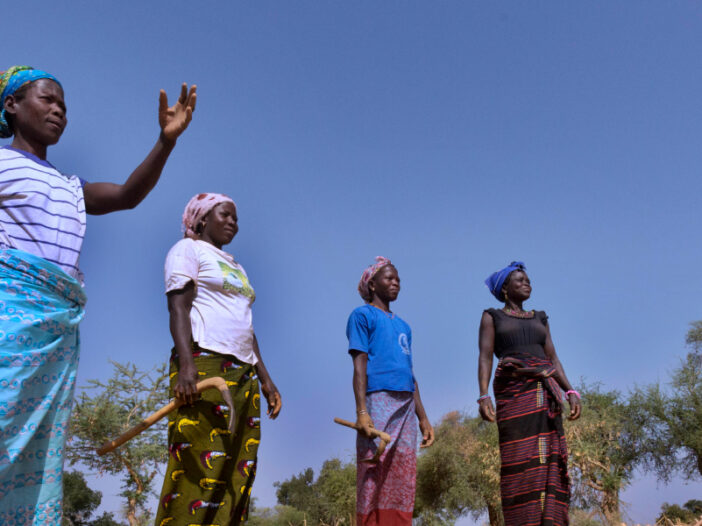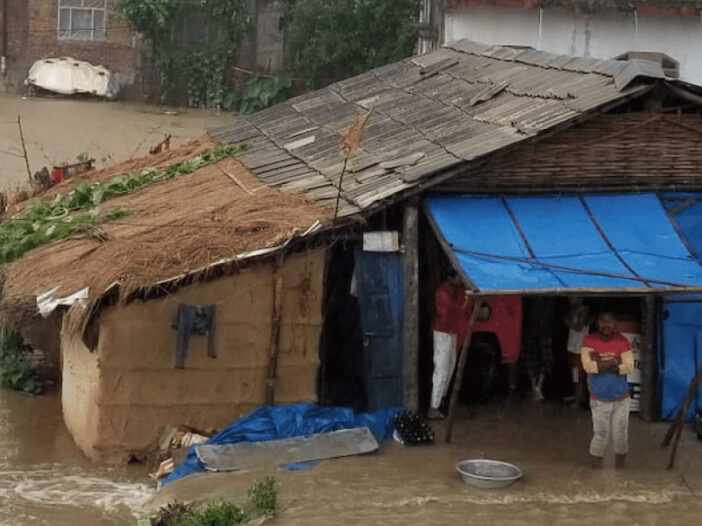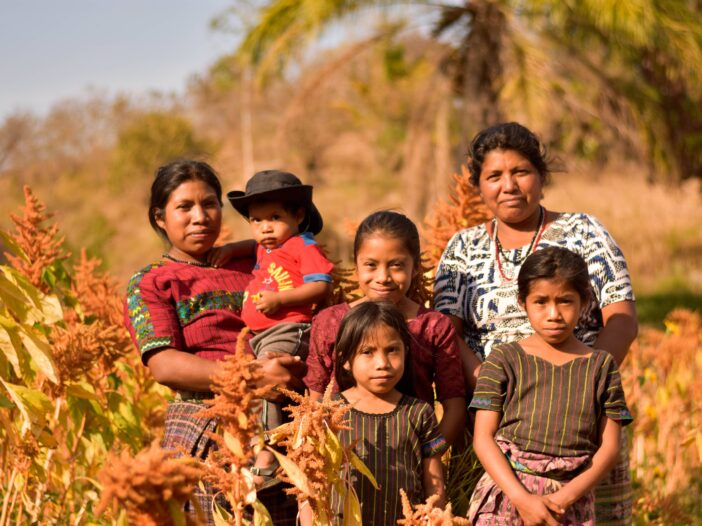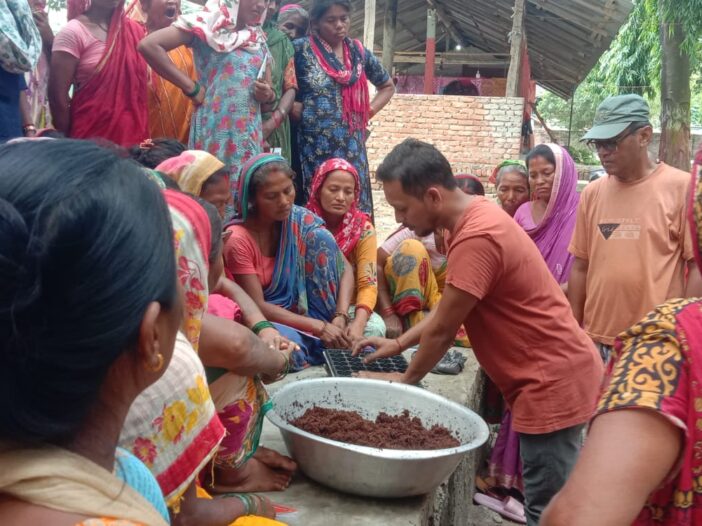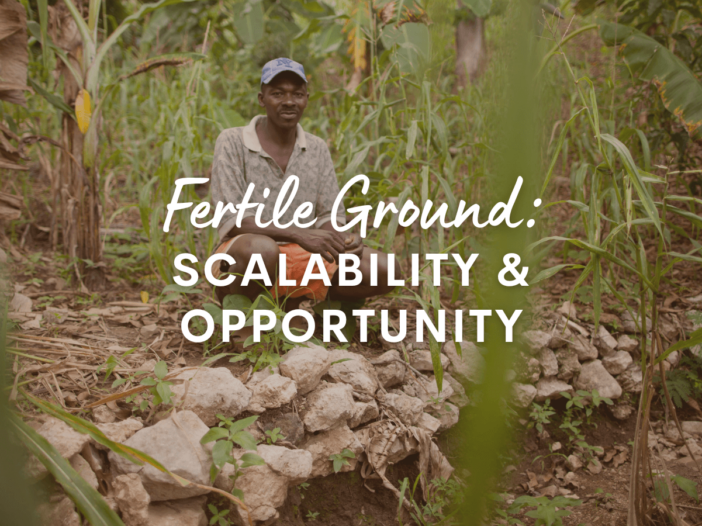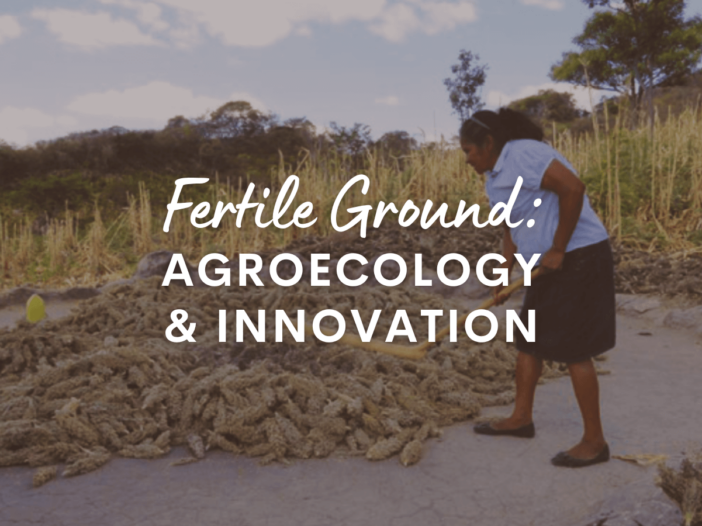For over 13,000 years, farming has been about people constantly innovating and working with nature to create reliable ways to grow food and enhance well-being. But the past 200 years have seen a dramatic shift towards industrial agriculture. Heavy reliance on fossil fuels and mechanization became the norm, prioritizing quick growth over protecting natural resources. Today, a few large corporations dominate the supply of farming inputs such as chemical fertilizers, pesticides and … [Read more...] about Transforming Food Systems From the Ground Up: Our Theory of Change
Devastating Flood in Nepal Affects Dozens of Families in the Terai Region
On what seemed like an ordinary monsoon night, the residents of Ishworpur Municipality in Sarlahi were caught off guard by an unprecedented flood. This was no ordinary flood; it was a catastrophic event brought about by a combination of unplanned urbanization, haphazard construction, and extensive land coverage with concrete. The relentless rain, unable to find its natural course, wreaked havoc as it flowed uncontrollably through the Terai region. The Terai region of Nepal lies along … [Read more...] about Devastating Flood in Nepal Affects Dozens of Families in the Terai Region
Celebrating 15 Years of Impact: A Letter From Steve Brescia, Executive Director
Dear Friends, Groundswell will celebrate 15 years in 2024. We feel both humbled and proud as we reflect on what we have been able to accomplish together so far, and are determined to have an even greater impact in the future. Since our founding, we have learned a lot about how to coordinate an effective international network for collective impact, one that reflects our shared values and centers the agency of smallholder and indigenous farming communities. We are pleased to share some 2023 … [Read more...] about Celebrating 15 Years of Impact: A Letter From Steve Brescia, Executive Director
Empowering Women in Agriculture: The Transformative Impact of Agroecology and Community-Led Initiatives
Women are essential to furthering the agroecological movement and improving the well-being of their communities and families. However, in many countries worldwide, women are more likely to be denied access to resources needed to be successful in agriculture (land, animals, access to money credit). Agroecology, “the holistic and integrated approach that simultaneously applies ecological and social concepts and principles to the design and management of sustainable agriculture and food systems” … [Read more...] about Empowering Women in Agriculture: The Transformative Impact of Agroecology and Community-Led Initiatives
Scaling Agroecology for a Resilient Future in Haiti & Ecuador
Agroecology offers a path for the positive transformation of our flawed farming and food systems, which significantly contribute to climate change, obesity, and global hunger. As interest in scaling agroecology grows, it’s crucial to evaluate its potential to merge science, practice, and social movements to build sustainable food systems. By offering practical and scalable solutions, agroecology promotes nutritious diets, soil regeneration, and climate resilience among farmers and … [Read more...] about Scaling Agroecology for a Resilient Future in Haiti & Ecuador
Fertile Ground: Agroecology and Innovation
During a systemic "polycrisis" in agriculture and food systems, agroecology emerges as a transformative solution. Agroecology addresses climate change, health crises, and global hunger while catalyzing practical, scalable approaches for sustainable diets, soil regeneration, and climate resilience. Embraced by diverse institutions, it aims for a just transition, nourishing landscapes, and empowering farmers in the face of pressing challenges. Peasant Innovation and Agroecology in Brazil’s … [Read more...] about Fertile Ground: Agroecology and Innovation

